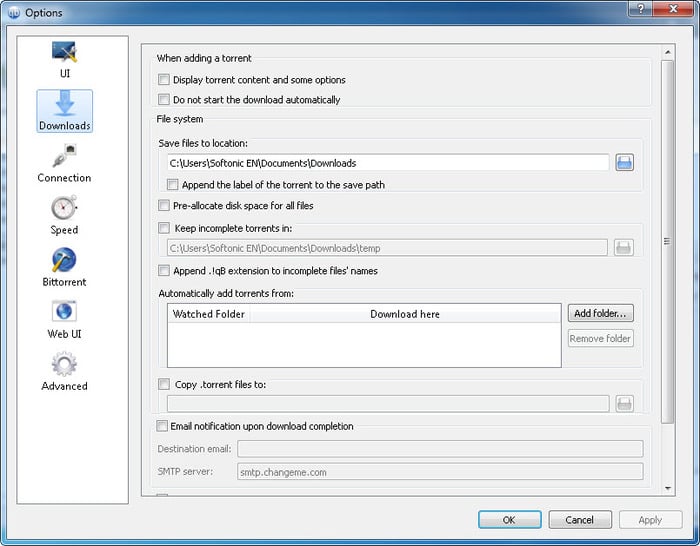

- #QBITTORRENT NO DIRECT CONNECTIONS HOW TO#
- #QBITTORRENT NO DIRECT CONNECTIONS FULL#
- #QBITTORRENT NO DIRECT CONNECTIONS DOWNLOAD#

I have to kill it to get it to start again. I can restart it, but any time I try to create a new torrent qbittorrent locks up hard. I hit Create and it started hashing, but about halfway through qbittorrent crashed. Now I've tried to create a torrent and entered a couple of the trackers in that article you suggest. Why is my machine sending out these ports in seemingly new sessions? If a request comes in on my designated port, the response should go out the other end's port without being blocked, as it's in a tcp or udp session. I am still getting alot of firewall blocks on random tcp and udp ports, which I do not understand why these ports are used. I'll bet this is common for those having trouble.

In the router configuration for port-forwarding there is a tiny box at the far left of the line which must be checked.
#QBITTORRENT NO DIRECT CONNECTIONS HOW TO#
There are no instructions on how to set this. I've tried creating a torrent file (since the files I'd like to share do not have one), but it always insists on knowing what the trackers are. I would love it if DHT worked, but I have no idea what it requires as far as communication? I've set my designated port to 43041 in qbittorrent, and set this to port-forward through my router (Dlink DIR-825), for both TCP & UDP, to the IP of my qbittorrent machine. I really hate having my firewall down, despite the router's firewall. When the firewall was up I found I got millions of UDP port blocks, I assume because a request coming in would not open the UDP port out since UDP is stateless. Now I see seeds for a number of files I hadn't gotten downloading on previously (privileged ports?), but it is still showing No direct connection. In desperation I took down Shorewall and just opened everything up. Yes I am running Shorewall firewall on the Debian Testing system. I usually use Launchpad for interacting with users. Sorry for IRC, I'm not really used to it. Once qBittorrent has checked all the files, the torrent will be moved to uploads tab and will be seeded. During this time, it will appear in checking state.
#QBITTORRENT NO DIRECT CONNECTIONS DOWNLOAD#
Please understand that the torrent will appear in download list during some time. Otherwise, you will have to add the torrent file to qBittorrent manually as I explain earlier. Once the torrent file is created, qBittorrent provides an option to seed the torrent automatically (just check the right box when creating the file). qBittorrent provides an embedded tool to achieve this task which is quite easy to use. If you don't have an associated torrent file yet, then you should create one. qBittorrent will check them and then seed them. If the files you want to share don't have an associated torrent file, then simply add this torrent file to qbittorrent and select as destination folder the place where the files are already present on your computer.
#QBITTORRENT NO DIRECT CONNECTIONS FULL#
Having direct connections should should transfers to reach full speed.Ībout sharing, this is quite easy. Allow INPUT for both UDP and TCP on port 6881 (or the one you set) I'm not a firewall wizard but I guess you should: So I guess this means you are also using a firewall locally. Now, you said that you opened outgoing UDP on your computer. Usually it is sufficient to redirect on your router this port (for both protocol) to your computer. Default port is 6881 but it can be changed in program preferences. QBittorrent <= v1.3.x uses the same port for TCP and UDP.


 0 kommentar(er)
0 kommentar(er)
